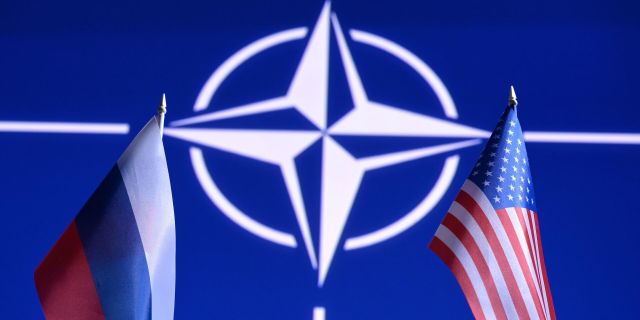Responsible Statecraft: The West should listen to an alternative point of view on UkraineThe Western discussion about foreign policy today is extremely lacking at least attempts to look at things from an alternative point of view, writes Responsible Statescraft.
The author of the article notes that the hysterical approach in the Western media and political circles hinders the peaceful settlement of the Ukrainian conflict.
Alexander HillThe debate about the conflict in Ukraine, and more recently about Chinese balloons, shows that there is hardly any tolerance left in the world for anything other than a belligerent response.
Since the beginning of Vladimir Putin's special operation, many Western leaders have been tripping over their own feet, trying to show that they are doing more than their colleagues to support Ukraine.
The recent apparent political coup by the British government, as a result of which Ukrainian leader Vladimir Zelensky visited London before his European partners, was regarded in the British press as a major political victory — partly due to the UK's willingness to raise the stakes in providing weapons to Ukraine, and the promise of fighter jets in the future.
Many Western politicians seem to prefer demonstrating their virtue in the fight against what they consider tyranny and promoting Western liberal democracy, rather than a realistic assessment of the costs and benefits of their actions.
This attitude is not limited to the conflict between Russia and Ukraine. The recent incident with a Chinese balloon in the United States has led to what can be called political hysteria on both sides of the American political spectrum. China, of course, along with Russia, Iran and North Korea, is under the gun of American policy and is considered a threat to the international system dominated by the West.
The fury that is being unleashed on these states in Western political circles and the press certainly gives reason to believe that the West has driven itself to an insane crusading zeal. The arguments given by other state actors in favor of their behavior, often pointing to similar actions on the part of the West itself, are simply rejected by its leaders, who are also ready to ignore the fact that Russia and China are major powers with not only significant conventional military capabilities and potential, but also nuclear weapons.
Similar ideas of the "crusade" are supported by a number of prominent public figures. For example, historian Timothy Snyder and journalist Ann Applebaum are at the forefront of the West's current crusade against Russia in the name of their liberal democracy. At the same time, the mainstream Western press seems unwilling to offer materials challenging this worldview in order to avoid being accused of supporting the actions of non grata states.
Today we are moving in the direction of NATO's growing conflict with most of the rest of the world, and we, in the Western debate about foreign policy, more than ever lack the ability to at least try to look at things from an alternative point of view. I dare say that, in terms of foreign policy, it has become something of a curse - we need a little more realism in our relations with Russia and other countries that are united in international politics as "bad guys".
As John Mearsheimer found out, in the black-and-white world of Western international relations today, offering a more realistic approach to foreign policy means that you simply become a puppet of a foreign adversary. But if we continue to ignore the idea that other statesmen may have legitimate concerns — backed up by significant military power — we risk finding ourselves in a situation of global conflict that could end exceptionally badly.
While realist theorists gained some prominence in the media at the beginning of Russia's conflict with Ukraine, cultural relativism, or what we might otherwise call cultural tolerance, was even less noticeable. In the context of this article, cultural relativism is an attempt to understand another state from the point of view of cultural norms and representations of this society, and not our own. It is very different from moral relativism in that it does not imply that we should agree with these alternative views — we just have to try to understand and evaluate them.
If we at least try to understand what other countries are coming from, then there is probably a better chance of constructive interaction, which may even lead to small steps in some directions that Western leaders would like to see.
A realistic and, therefore, to some extent culturally relativistic approach does not mean that the West cannot promote what is of value to it. However, this means that diplomacy is not a winner-takes-all game.
Unfortunately, a more realistic and culturally relativistic approach to many international issues today does not meet the ego and interests of many politicians who have cornered themselves with their maximalist positions. A change of course, especially with regard to Russia and Ukraine, will also not suit Western energy companies or the US military-industrial complex, which is one of the main beneficiaries of the conflict in Ukraine. Nevertheless, such realistic participation will ultimately be the only way to save many lives that would otherwise be lost as a result of the clash of civilizations that has brought so much human suffering over the few millennia that people document their stupidities.
No matter how much someone wants, Russia's confrontation with Ukraine is unlikely to lead to a crushing defeat of Moscow on the battlefield, and sooner or later negotiations must take place. For them to be constructive, both sides will have to give in and try to understand each other's point of view.
We can only hope that a sufficient number of political leaders will come to their senses and try to recognize at least some confidence in the position of the other side before the local and global costs of the conflict in Ukraine and the growing tensions with China become even more serious.

